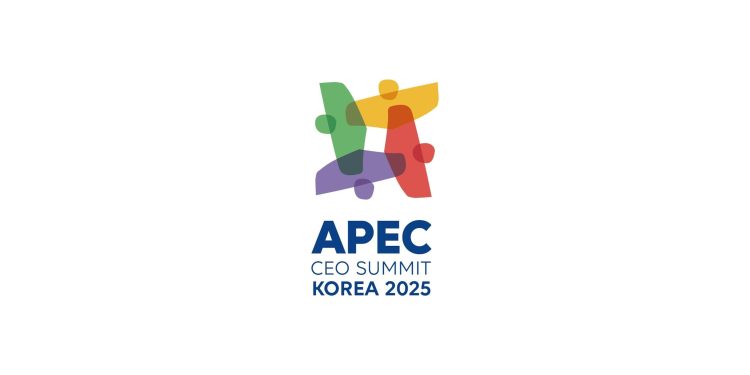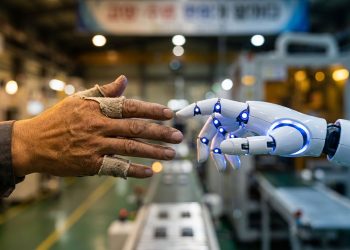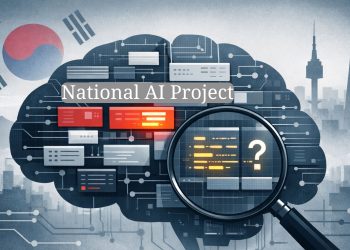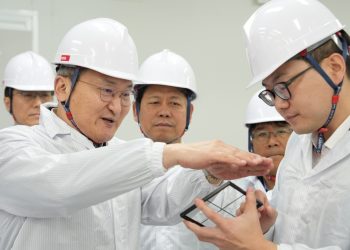As AI reshapes the global digital economy, Korea leads regional dialogue on inclusion, innovation, and governance ahead of the APEC CEO Summit
South Korea hosted the first-ever APEC Digital & AI Forum in Incheon, marking a pivotal step toward shaping a unified approach to artificial intelligence across the Asia-Pacific. Co-hosted by the Ministry of Science and ICT (MSIT) and the World Bank, the event gathered policymakers, business leaders, and experts from APEC’s 21 member economies to discuss how AI can fuel inclusive and sustainable digital growth.
The central question that anchored the forum — whether AI will deepen global divides or drive shared prosperity — reflected both the opportunities and the anxieties surrounding the technology’s rapid rise. Discussions underscored the need for collective governance, regional collaboration, and shared ethical frameworks to guide AI’s impact on economic development.
Building an Inclusive AI Vision
The Asia-Pacific Economic Cooperation (APEC) has long been a platform for advancing cross-border cooperation, but this new digital and AI track represents a significant expansion of that mission. The forum served as a policy and innovation platform for governments, corporations, and international institutions to exchange insights and craft a vision for an inclusive digital future built on three priorities:
- Strengthening regional connectivity through shared digital infrastructure;
- Promoting inclusion to ensure all economies can benefit from AI innovation; and
- Accelerating innovation while maintaining trust, transparency, and safety.
Opening the forum, Bae Kyung-hoon, Korea’s Minister of Science and ICT, urged collective responsibility in shaping AI’s trajectory:
“We must ensure that AI development aligns with human values and benefits all economies equitably. Korea is committed to building a responsible AI framework grounded in safety, transparency, and shared progress.”
Echoing this sentiment, Sangbu Kim, World Bank Vice President for Digital, emphasized the urgency of cooperation:
“The future of AI is not yet written. Whether it becomes a force for inclusion or fragmentation depends on the choices we make today. The World Bank is committed to working with APEC economies to close the AI divide and build a digital future that is inclusive, trusted, and resilient.”
Turning Dialogue into Strategy
Forum sessions delved into practical strategies to transform this vision into action. Policymakers, researchers, and industry specialists discussed how AI can:
- Enhance cross-border connectivity and resilience;
- Modernize government services and strengthen digital inclusion;
- Improve access to education, healthcare, and financial systems; and
- Foster responsible innovation while managing risks like algorithmic bias and data misuse.
The consensus among participants was clear — AI’s future success depends not only on technological advancement but on governance, ethics, and equitable access.
Industry Leaders Demonstrate AI in Action
Alongside the policy dialogues, an industry exhibition showcased how AI is already reshaping industries and consumer experiences. Korean tech leaders such as Naver, SK Telecom, Kakao, and Furiosa AI presented next-generation innovations — from advanced language models to AI-driven semiconductors — illustrating Korea’s growing AI ecosystem.
Global players including Meta, Google, and Visa also participated, displaying AI-powered assistants, wearable devices, and intelligent payment platforms. The exhibition highlighted the breadth of AI’s real-world applications, demonstrating that the Asia-Pacific region is not merely adopting AI but actively contributing to its development.
APEC CEO Summit 2025: A Broader Technological Vision
The forum sets the stage for the APEC CEO Summit 2025, scheduled to take place later this month in Gyeongju, South Korea. The event will bring together over 1,700 global leaders from business, government, and international organizations.
The summit, themed “Bridge, Business, Beyond (3B),” will bring together 85 speakers across 20 sessions to discuss key priorities such as AI and digital transformation, sustainability, regional connectivity, investment opportunities, and healthcare advancement. The agenda is designed to highlight APEC’s growing importance as a platform where technology and economic development intersect.
Showcasing Korea’s Technological Leadership
Beyond the main events, Korea will host a series of APEC-related business and technology forums to showcase its digital strengths and promote global partnerships. Highlights include:
- The Future Tech Forum, where SK Group, Hanwha Aerospace, HD Hyundai, and Korea Hydro & Nuclear Power (KHNP) will present developments in AI, defense, shipbuilding, and clean energy.
- The K-Tech Showcase, featuring Korean innovations in robotics, mobility, and display technologies.
- The Invest Korea Summit and Export Boom-Up Korea initiatives in Seoul, designed to boost cross-border trade and attract foreign investment.
These events reflect Korea’s broader ambition to become a regional hub for digital transformation, strengthening collaboration between industry, government, and academia.
Economic and Strategic Impact
According to an analysis by the Korea Chamber of Commerce and Industry (KCCI) and Deloitte, the APEC CEO Summit and related events are expected to generate an economic impact of approximately 7.4 trillion Korean won (US$5.3 billion) and create around 22,000 jobs. The report notes that the benefits extend far beyond immediate revenue, as Korea’s leadership in hosting digital and AI-related forums positions it as a thought leader in AI ethics, innovation, and policy formulation within APEC.
Analysts view these initiatives as part of a long-term strategy to align Korea’s technological capabilities with its diplomatic influence. By fostering discussions around AI governance, inclusion, and sustainable innovation, the country is reinforcing its role as a bridge between advanced and emerging economies in the Asia-Pacific.
Korea’s Broader Digital Vision
By hosting both the APEC Digital & AI Forum and the upcoming CEO Summit, Korea is signaling its intention to lead the regional conversation on digital governance and responsible AI development. The country’s approach — grounded in collaboration, ethics, and innovation — reflects a recognition that technology alone cannot drive prosperity without trust and inclusivity.
The APEC events together serve as a showcase of Korea’s growing influence as a digital policy leader, a technology innovator, and a regional convener. In an era defined by digital transformation, Korea’s role in shaping the principles of AI-driven progress could define not only its national trajectory but also the future of technology governance across the Asia-Pacific.







